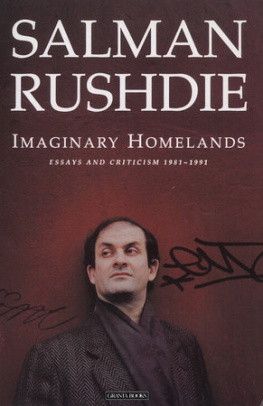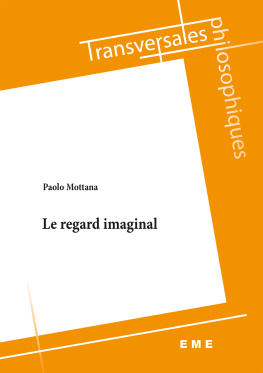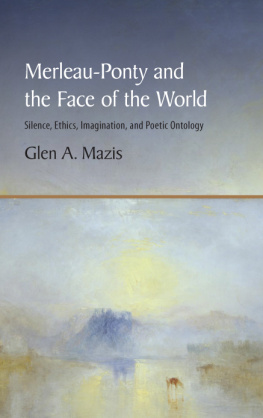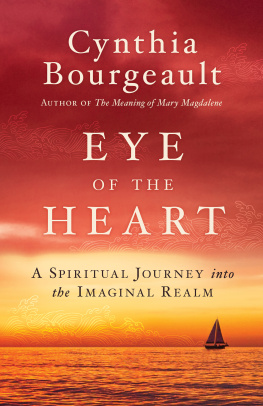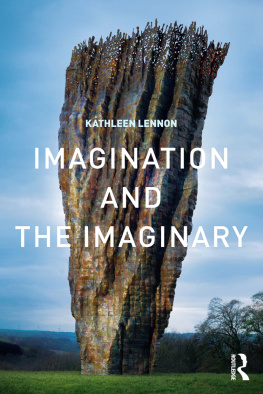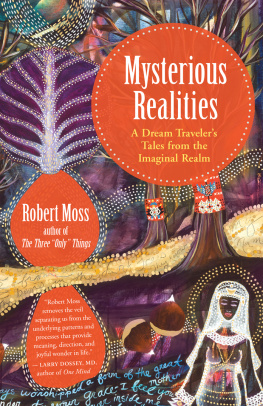IMAGINAL POLITICS
New Directions in Critical Theory
NEW DIRECTIONS IN CRITICAL THEORY
Amy Allen, General Editor
New Directions in Critical Theory presents outstanding classic and contemporary texts in the tradition of critical social theory, broadly construed. The series aims to renew and advance the program of critical social theory, with a particular focus on theorizing contemporary struggles around gender, race, sexuality, class, and globalization and their complex interconnections.
Narrating Evil: A Postmetaphysical Theory of Reflective Judgment, Mara Pa Lara
The Politics of Our Selves: Power, Autonomy, and Gender in Contemporary Critical Theory, Amy Allen
Democracy and the Political Unconscious, Nolle McAfee
The Force of the Example: Explorations in the Paradigm of Judgment, Alessandro Ferrara
Horrorism: Naming Contemporary Violence, Adriana Cavarero
Scales of Justice: Reimagining Political Space in a Globalizing World, Nancy Fraser
Pathologies of Reason: On the Legacy of Critical Theory, Axel Honneth
States Without Nations: Citizenship for Mortals, Jacqueline Stevens
The Racial Discourses of Life Philosophy: Ngritude, Vitalism, and Modernity, Donna V. Jones
Democracy in What State? Giorgio Agamben, Alain Badiou, Daniel Bensad, Wendy Brown, Jean-Luc Nancy, Jacques Rancire, Kristin Ross, Slavoj iek
Politics of Culture and the Spirit of Critique: Dialogues, edited by Gabriel Rockhill and Alfredo Gomez-Muller
Mute Speech: Literature, Critical Theory, and Politics, Jacques Ranciere
The Right to Justification: Elements of Constructivist Theory of Justice, Rainer Forst
The Scandal of Reason: A Critical Theory of Political Judgment, Albena Azmanova
The Wrath of Capital: Neoliberalism and Climate Change Politics, Adrian Parr
Social Acceleration: The Transformation of Time in Modernity, Hartmut Rosa
The Disclosure of Politics: Struggles Over the Semantics of Secularization, Mara Pa Lara
Radical Cosmopolitics: The Ethics and Politics of Democratic Universalism, James Ingram
IMAGINAL POLITICS
IMAGES BEYOND IMAGINATION AND THE IMAGINARY
CHIARA BOTTICI
COLUMBIA UNIVERSITY PRESS
New York

COLUMBIA UNIVERSITY PRESS
PUBLISHERS SINCE 1893
NEW YORK CHICHESTER, WEST SUSSEX
cup.columbia.edu
Copyright 2014 Columbia University Press
All rights reserved
Library of Congress Cataloging-in-Publication Data
Bottici, Chiara.
Imaginal politics: images beyond imagination and the imaginary / Chiara Bottici.
pages cm (New directions in critical theory)
Includes bibliographical references and index.
ISBN 978-0-231-15778-0 (cloth: alk. paper) ISBN 978-0-231-52781-1 (e-book)
1. ImaginationPolitical aspects. 2. Imagery (Psychology)Political aspects. 3. VisualizationPolitical aspects. 4. Political sciencePhilosophy. I. Title.
JA71.B583 2014
320.01'9dc23
2013030821
A Columbia University Press E-book.
CUP would be pleased to hear about your reading experience with this e-book at .
COVER IMAGE: J. R. EYERMAN, TIME & LIFE PICTURES / GETTY IMAGES
BOOK & COVER DESIGN: CHANG JAE LEE
References to Web sites (URLs) were accurate at the time of writing. Neither the author nor Columbia University Press is responsible for URLs that may have expired or changed since the manuscript was prepared.
To my parents,
who taught me the power of imagining,
and to my children,
who taught me how to use it.
CONTENTS
It is a hard if not desperate enterprise trying to acknowledge all the intellectual debts that I have acquired in writing this book over more than a decade. Any list would be inevitably incomplete. Instead of a partial list, I will therefore begin by telling an equally partial story of how this book came about. When I was still finishing A Philosophy of Political Myth, Benot Challand, in his usual provocative style, invited me to look beyond myth and try to conceive of politics itself as a struggle for peoples imagination. That seed, planted in the summer of 2003, found fertile terrain, and although it required much longer than he probably would have hoped for, it has now grown into the present work.
An important intermediate step was the workshop entitled Politics as Struggle for Peoples Imagination (2526 January 2007) that we organized together, thanks to the generous support of Bo Strth and the History Department of the European University Institute in Florence. I am grateful to all the participants of that event, along with the other contributors to the publication of the volume that followed it, for very lively and stimulating discussions (see our The Politics of Imagination, Birkbeck Law Press, Routledge, 2011).
Among the institutions that supported me during this enterprise, I would like to acknowledge the Department of Philosophy of the University of Florence and the Istituto Italiano di Scienze Umane for grating me a five-year fellowship (20042009) that assured enough tranquility to embark on an ambitious enterprise. I also thank the Political Philosophy team of the Goethe Universitt in Frankfurt and Rainer Forst, who invited me to the city of the School, where I found an ideal environment to teach and conduct research for this book in 20092010.
Finally, I thank my current colleagues at the Philosophy Department of the New School for Social Research, where this book has been completed. I have found here not only an ideal intellectual environment in which to pursue this enterprise but also an atmosphere of friendship and intellectual companionship that is truly unique. In particular, I would like to thank Omri Boehm, for his Kantian insights; Jay Bernstein, for many virtual lectures and for less-virtual philosophical conversations; Zed Adams, for sharing with me his thoughts on the nature of images; James Dodd for his careful phenomenological insights; and Alice Crary for sharing her ideas on feminism and epistemology. Cinzia Arruzza and Dmitri Nikulin must be thanked both for their friendship and for lending me their ancient and modern erudition. Simon Critchley has been an inspiring colleague and friend on too many occasions to be listed. My deepest thanks to all my colleagues as well as to my students who have also contributed to the development of the ideas presented in this book. For invaluable research assistantship, I wish to thank Veronica Dakota, Ryan Gustafson, Alejandro Quintero, Meghan Robison, Scott Schushan, Elisabeth Suergiu, and Max Tremblay.
Outside of the Philosophy Department, the New School of Social Research has also provided me with an ideal interdisciplinary environment to work out my ideas. Among those with whom I have worked more closely in the past years, I would like to mention Banu Bargu, Andreas Kalyvas, Ross Poole, Janet Roitman, Ann Stoler, Ken Wark, and Jamieson Webster. Nancy Fraser has been an inspirational critical companion, between Philosophy and Political Science.
I am indebted to Laura Bazzicalupo for her commenting on this project along the way and to Elena Pulcini for many philosophical symposia. For reading earlier drafts or parts of the manuscript, my deepest thanks to Amy Allen (editor of this series), Suzi Adams, Omri Boehm, Robin Celikates, Dimitri Dandrea, Furio Cerutti, Costa Douzinas, Roberto Esposito, Alessandro Ferrara, Thomas Hippler, Paul Kottman, Todd May, Cristoph Menke, Rainer Forst, Angela Khner, Maria Pia Lara, Nicola Marcucci, Alessandro Pizzorno, Elena Pulcini, Armando Salvatore, Camil Ungureanu, Peter Wagner, and Hayden White. Without Dario Squilloni, who guided me through the labyrinth of the imaginal world, this book would not have had its current subject. Simona Forti provided me the generous gift of a careful comment of the entire manuscript along with that, impossible to thank for, of a true friendship. A special thank you to my critical colleague and friend Richard Bernstein for his meticulous comments on the first draft of this manuscript as well as for his constant encouragement to continue in this enterprise.


